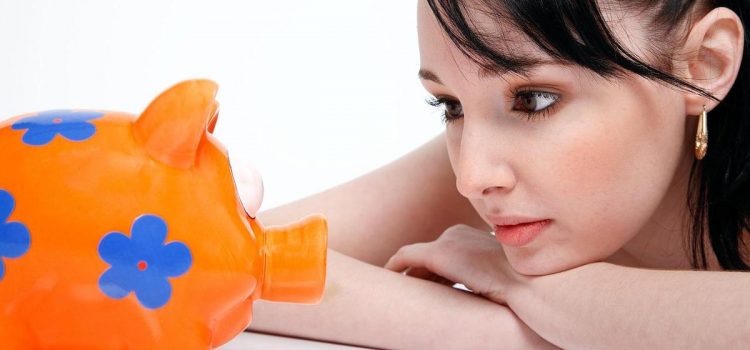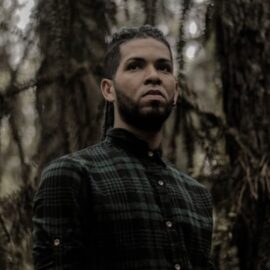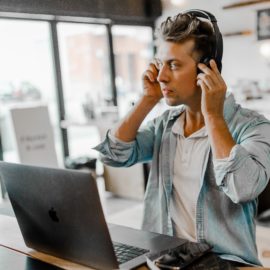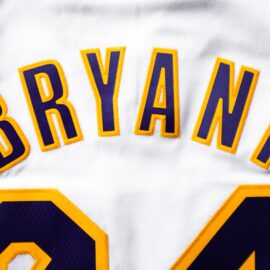

This article gives you a glimpse of what you can learn with Shortform. Shortform has the world’s best guides to 1000+ nonfiction books, plus other resources to help you accelerate your learning.
Want to learn faster and get smarter? Sign up for a free trial here .
What’s the best money you ever spent? Do you distinguish necessities from luxuries? Is wealth a zero-sum game?
It’s likely that you could benefit from being more thoughtful about money and how it intersects with your life—your goals, dreams, and values. Even if you’re not naturally financially minded, you can gain a healthier way to think about money and a healthier relationship with it.
Read more if you’d like to achieve a better alignment between money and your values and enjoy more of what matters most to you.
The Way You Currently Think About Money
Before we look at the ways in which you might think about money differently, it helps to identify the way you currently look at it. Consider the following prompts and questions:
- “To me, money means … .”
- “Money makes me feel … .”
- Are you closer to the first or the second viewpoint in each set below?
- “Money means scarcity.” vs. “Money means abundance.”
- “Money controls me.” vs. “I control money.”
- “I try to avoid money matters.” vs. “I proactively address money matters.”
- How has the way you think about money been shaped by financial matters in your childhood?
- What’s your desired relationship with money?
7 New Ways to Think About Money
Now that you have a gauge on that, let’s consider seven ways to think about money that could be new to you. You might be amazed at the practical change that can happen when you see money in a different light.
#1: Money Means Options and Freedom
“Wealth is not about having a lot of money; it’s about having a lot of options.” (Chris Rock)
Money has potential. It has the potential to turn into Christmas decorations or cooking lessons or car repairs. Let’s say that you have $20. What is its potential? With $20, you can buy a large pizza and a root beer or an essential oil diffuser or a ticket to a soccer game or 20 can openers at the dollar store.
Of course, many more options exist. Once the $20 is spent, it no longer has potential. Your options go away. You’re no longer free to spend the $20 however you want. Sure, you’re now the proud owner of 20 can openers, and they certainly have value, but you no longer have the option to go to the soccer game—or to do or have anything else with that $20.
Obviously, more money means more potential—more options, more freedom. Just start thinking about the options you would have with $2,000, and you quickly realize that the potential is great.
What is it worth to have options and freedom? If you spend all of your money, you have everything that you get in exchange for it, but you’re now out of options. You’re no longer free to do or have anything else that costs money. If you don’t spend any money, you have innumerable options, but you also don’t have anywhere to live, anything to eat, or anything to wear. We can’t have that.
Obviously, you must land somewhere in the middle—enjoying necessities and some luxuries while keeping some options by keeping some money. With this way of thinking, you’re likely to be wiser about money and appreciate more freedom in your life.
Exercise #1
Money means options and freedom.
- Think about the money you have. What potential does it have? What options does it give you?
- Think about what additional options you’d like to have. Include both necessities and luxuries. Include goods, services, and experiences—anything that costs money.
#2: If You Buy X, You Can’t Buy Y
“You can’t have everything. Where would you put it?” (Steven Wright)
This is similar to #1 in that it’s about options. However, instead of comparing unspent money to spent money, we’re now comparing various ways to spend the same amount of money. This is a great way to get a deeper sense of the value of things.
In this way, money is a zero-sum game. You have $20 to spend. If you buy the essential oil diffuser, you cannot buy the pizza and root beer. If you do not buy the diffuser, you can buy that meal. Because they each cost $20, you cannot have both.
This is a different way of looking at purchases. The diffuser is worth $20, but it is also worth a large pizza and a root beer. The diffuser is worth—not just money—but anything that can be obtained by the same amount of money.
Here’s one way to think about money: If you buy X, you cannot buy Y. Of course, the reverse is true: If you do not buy X, you can buy Y. Since you can’t buy everything, it’s helpful to do a mental exercise like this before you spend money:
- If I take a vacation to Switzerland, I can’t afford to build an outdoor kitchen for grilling.
- I can start a business by buying a hot dog cart franchise, or I can pay off my credit cards.
- If I don’t buy lattes for one month, I can buy a concert ticket.
Train your mind in this way, and you’re likely to find yourself making money decisions that are a good fit for your values.
Exercise #2
If you buy X, you can’t buy Y.
- List five things that you’re considering spending money on.
- For each item on your list, think of at least five things (or a combination of things) of equal value that you also want or need.
#3: Luxuries Are Not Necessities
“Let me be surrounded by luxury; I can do without the necessities!” (Oscar Wilde)
Luxuries are not necessities. This is obvious, right? Too often, however, we think of them this way.
For most of my life, I thought that shampoo was a necessity. I had always used it. Then I learned that shampoo is not necessary to have clean hair. Now I have “shampoo money” that I can save or use to buy something else. I also realized that I could “get away with” wearing only eye makeup and ditching foundation, powder, and lipstick. I consider all makeup to be a luxury, but I choose to draw a line in a certain place.
The main thing is that I got out of autopilot when it comes to spending. I thought it through, I distinguished luxuries from necessities, and I made a more informed decision.
One person’s luxury might be another person’s necessity, so I’m not going to make these distinctions for you. I simply encourage you to make them for yourself.
Exercise #3
Luxuries are not necessities.
- What do you spend money on? List as many things as you can think of.
- Review your list. Mark the necessities with an N and the luxuries with an L.
- Considering how you distinguished between necessities and luxuries, how would you describe where you draw the line between the two?
#4: Expenditures Reveal Values
“When your values are clear to you, making decisions becomes easier.” (Roy E. Disney)
If a stranger looked at your expenditures, what would they determine about your values? Whether you realize it or not, your expenditures are a glimpse into what you care about. In addition to food and shelter, perhaps education, electronics, charitable giving, or entertainment would show up as values.
Still, you might want to see a better alignment between what you care about most and how you spend your money. The exercise below can help.
Exercise #4
Expenditures reveal values.
- What matters most to you? What brings you the most satisfaction?
- What’s the best money you ever spent? Why?
- What have you spent money on that you regret?
- What do you wish you had spent money on but didn’t?
- Imagine that someone sold everything you own and gave you the proceeds. You have the option to buy everything back at the price at which they were sold. What would you buy back, and what wouldn’t you buy back?
- How well do your expenditures line up with your values? How might you get better alignment?
#5: Money Buys More Than Material Goods
“Wealth is the ability to fully experience life.” (Henry David Thoreau)
We all know that money buys more than material goods, but we could use the reminder now and then. Think about your answers to a question from the last section: “What’s the best money you ever spent?” How many answers were nonmaterial?
Generally, nonmaterial expenditures are in two categories: services and experiences. Haircuts, babysitting, website hosting, and legal advice are services—tasks that you hire someone to do for you. Concerts, movies, and amusement parks are experiences.
Some expenditures, such as vacations and weddings, are a mixture of categories (including material goods), but the main point is the experience. It’s helpful to cultivate the idea that money buys more than just stuff.
Exercise #5
Money buys more than material goods.
- List about ten things you spend money on. Mark the material goods with an M and the nonmaterial goods with an N.
- Reflect on the balance you have between the two categories, and note any valuable observations.
#6: Wealth Can Be Created
“When money realizes that it is in good hands, it wants to stay and multiply in those hands.” (Idowu Koyenikan)
Remember #2? “If you buy X, you can’t buy Y.” In this way, money is a zero-sum game: Whatever is gained by one side is lost by the other. However, there’s a very important way in which money is not a zero-sum game: Wealth can be created.
Often, we think in terms of saving money, which typically implies spending less—cutting expenses. That’s great, of course. But, if we think less in terms of saving money and more in terms of having more money, our minds shift to making money. And, no, I don’t mean printing tens and twenties in your basement.
Perhaps you could get a job that pays more money, you could do some work on the side, or you could sell some of your belongings. If you want to have more money, cutting expenses is one option, and creating wealth is another.
Exercise #6
Wealth can be created.
- What are some things you could do to make money?
#7: Money Isn’t the Only Currency
“Every man lives by exchanging.” (Adam Smith)
Let’s say that you need your washing machine repaired. That will cost you something, right? Here are three options: (1) Hire someone to repair the machine; (2) Repair the machine yourself; (3) Mow your neighbor’s lawn in exchange for your neighbor repairing the machine.
Those options indicate three different currencies: money, time, and barter. When you need to obtain something or get something done, be creative. Money might not be the only path to your goal.
Let’s say that you want ornaments for your Christmas tree. You could buy some or spend time making some. If you’re better at making cookies than ornaments, you could trade some cookies for some decorations.
Get creative with options, and remember that money isn’t the only currency.
Exercise #7
Money isn’t the only currency.
- Think about your skills. What could you do for yourself or others in lieu of spending money?
- What are some items you own that you’d be willing to trade for something else?
Wrapping Up
Money is a necessary part of life. When we have a healthier, broader attitude about it, we’re bound to make better choices and take wiser actions. I encourage you to return to this list now and then—reviewing the ways to think about money and revisiting your responses in the exercises.
I hope you’re already experiencing new perspectives that can lead to practical, positive transformation in all of the areas where money intersects with your life.
Exercise: Next Steps
- Which of the seven ways of thinking do you need to focus on the most?
- What are your action items (next steps)?

Want to fast-track your learning? With Shortform, you’ll gain insights you won't find anywhere else .
Here's what you’ll get when you sign up for Shortform :
- Complicated ideas explained in simple and concise ways
- Smart analysis that connects what you’re reading to other key concepts
- Writing with zero fluff because we know how important your time is






